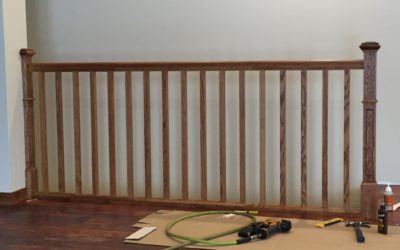
Homeowners select contractors, and to some extent contractors are interviewing homeowners at the same time to see if they would like to work for them. Finding a good fit and choosing a contractor that is qualified and reliable is essential for a smooth project. In the screening or interview process, sometimes what a contractor doesn’t say is just as important as what they do. We’ve included five clear warning signs NOT to hire a contractor.
Tips For Choosing a Contractor
First, check out this list from the NAHB. It can be used to help you select a home builder or remodeler for your upcoming project:
- Contact your local home builders’ association for the names of member builders and remodelers: NAHB/find. You can also ask family, friends or coworkers for recommendations.
- Make sure the builder or home remodeler has a permanent business location and a good reputation with local banks and suppliers.
- Find out how long they have been in the building business. It usually takes three to five years to establish a financially sound business. You want to make sure they will be around after the construction is complete to service any warranties.
- Check out the company’s rating and if there have been any complaints filed with your local Better Business Bureau: bbb.org
- Make sure the builder/remodeler has sufficient workers compensation and general liability insurance. If not, you may be liable for any construction-related accidents on your premises.
- Ask the builder/remodeler to provide you with names of previous customers. If they won’t, beware. If they do, ask the customers if they would hire the builder/remodeler again.
- Ask if you can see the builder/remodelers work, both completed and in progress. Check for quality of workmanship and materials.
- Do you feel you can easily communicate with the builder/remodeler? Remember, you will be in close contact with them throughout the construction process and afterward as you live in your new home.
- Make sure the builder/remodeler provides you with a complete and clearly written contract. The contract will benefit both of you. If you are having a new home built, get and review a copy of the home warranty and homeowner manual as well.
- Be cautious of unusually low-priced bids. If the builder/remodeler is unable to pay for the materials and labor as the project proceeds, this may indicate a potential problem. Keep in mind that less expensive does not necessarily mean better!
5 Reasons Not to Hire a Contractor
So you have saved money, scrimped on the family vacations for years, or just eliminated them all together to save up for that dream house or addition. Even if you are just hiring someone to put on a new roof or fix some of those nagging problems around the house, here are few things you shouldn’t hear when hiring a contractor. “I need all or 1/2 of the money upfront” If a builder needs all the money upfront, chances are they are not someone you should be dealing with. Depending on the size of the job, 1/3 down is an amount that gives the contractor some assurance you are invested in the project and gives him some money to pay for materials. “I only use good subs” Make sure you know who will be working on your house. If the contractor himself doesn’t physically do the work, ask around about his employees or sub contractor. A bad sub can turn the project into a nightmare even when everything else goes smoothly. Make sure you check references not only on the contractor but sub contractors also. “I’ll throw that in if I get the job” Contractors rarely throw something in. Make sure any additions to your contract state the work to done. Memories become forgetful as time passes. If it’s not in writing they don’t have to complete it. Just exercise diligence when asking for add on’s. Changes are most cost effective for you when you do them before the project starts or better yet before you hire someone. Always have change orders done in writing prior to the work being completed. “I’m licensed and I build to code” Just because an individual has a license doesn’t mean you will get quality workmanship. Good quality comes from experience and commitment to learning the trade; not purchasing or securing a license. Don’t forget code is the minimum standard that all builders must abide by. Would you want a doctor performing an operation on you that knows the minimum way to complete the procedure? I wouldn’t, neither should you hire a contractor that is only willing to do the minimum. Don’t get me wrong, I have seen over-kill that is just wasting a homeowners money. Again, this is why you need to check out the previous work of your potential contractor. “You don’t need a special person or license for that, we can do it cheaper” Beware of a builder wanting to remove things like asbestos or lead from your home unless he is qualified. EPA requires special training and certification for removal of materials considered harmful. If you are renovating, be sure your builder is RRP certified. You could be held liable yourself if you let someone work on your property and they don’t comply with requirements.In summary, make sure you always check references, check for a valid license, and make sure the contractor is insured. Selecting the right contractor to work on your home or project is perhaps the most important step in the process. One important thing to ask yourself is if you really need to hire someone to complete your project. For smaller home improvement tasks, you may be able to save time and money by learning the process yourself. However, if you’re unsure, or changing anything structural, it’s best to consult with a professional.

Door Installation Has Never Been Easier
- Install 5X Faster
- Eliminate Shims
- Perfect Fit Every Time




